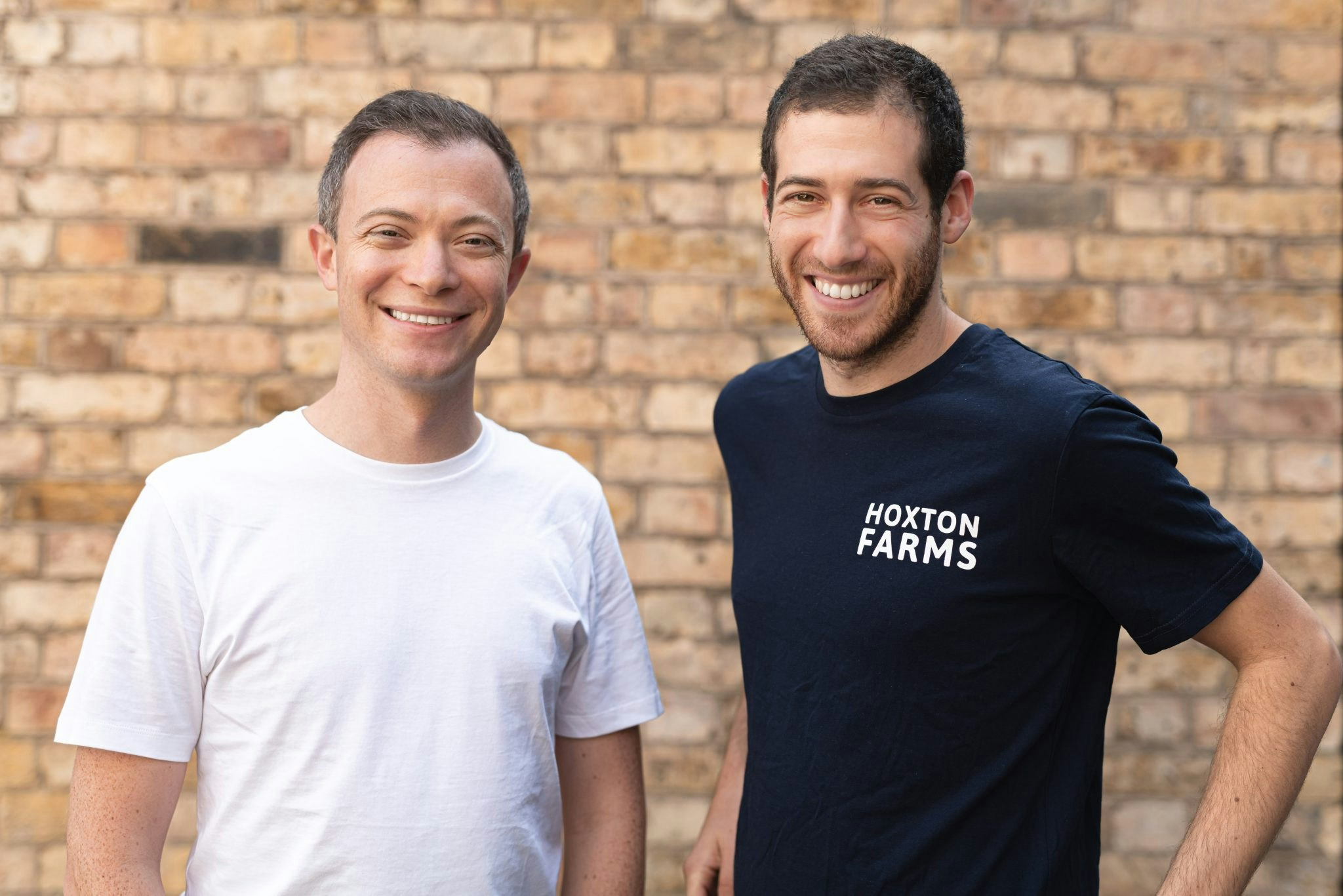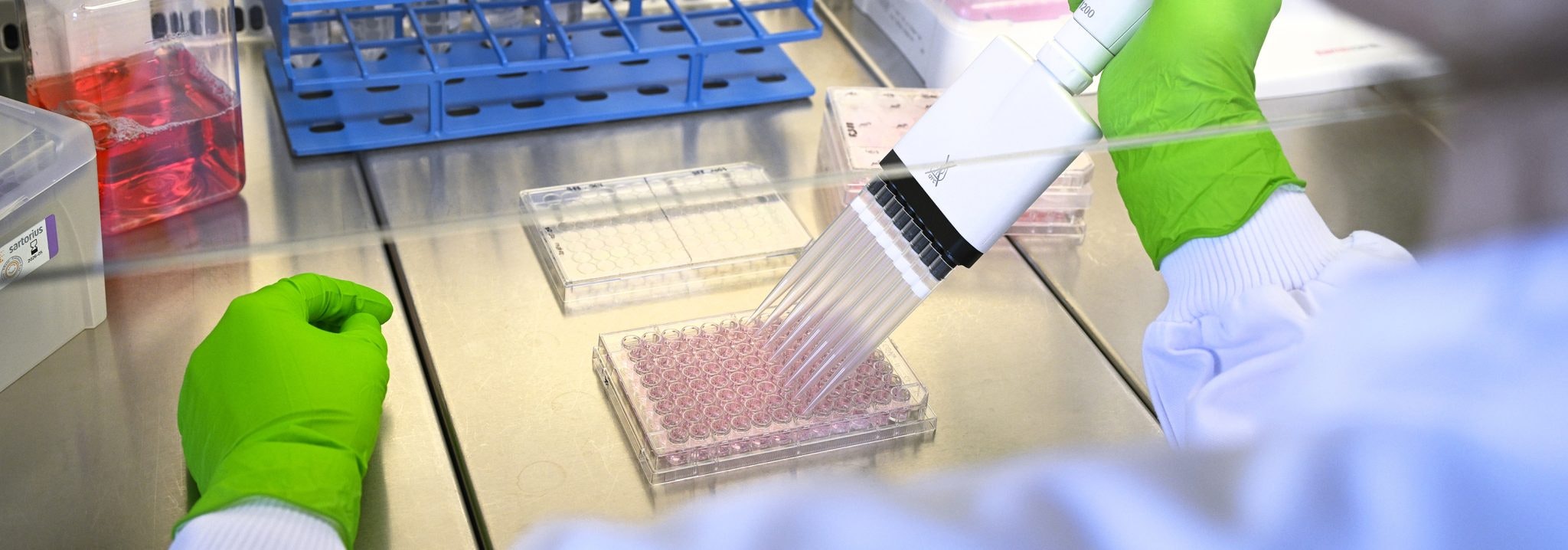Alternative meat sales boomed during the pandemic. Customers bought 25% more meat alternatives, compared to only a 9% increase for real meat.
But the alt-meat boom came to an abrupt halt last year, as galloping inflation and health concerns caused sales to fall.
Non-believers point to US plant-based giant Beyond Meat’s share price tumble — a 77% fall across 2022 — as a sign of trouble in plant-based paradise. But despite the bearish sentiments clouding the industry, European founders think the alt-meat dream is far from over.
Here are five reasons they gave to be optimistic.
1/ We're on the edge of scientific breakthroughs in lab-grown meat
Up until now, plant-based meat has been the only eco-friendly meat alternative available to customers. But founders say scientific breakthroughs mean we’re closer than ever to actually getting affordable — and tasty — lab-grown meat.
That’s important because price is a major brake on consumer adoption of alternative proteins. Plant-based alternatives cost, on average, 43% more than real meat, according to the nonprofit Good Food Institute, while cultured meat costs about €9 per burger, which is 64% more expensive than a McDonald's Big Mac.
Multus Biotechnology is a UK startup developing growth media ingredients to scale cellular agriculture (producing animal products by growing cells in labs.) It's hoping to reduce the production costs of cultured meat, and raised a $9.5m Series A in January 2023.
Meat alternatives also, currently, just don’t taste as good — but startups are working on that too. UK-based Hoxton Farms is creating cultured animal fat that can be used to bring the flavour of cultured meat closer to that of animal meat.
“Fat is a key ingredient that’s missing in [alternative meat] products — and more specifically, it's real animal fat that's missing,” says Ed Steele, cofounder of Hoxton Farms, which is selling its alt-fat to other alt-meat companies “to help them develop products that really do look, cook and taste just as good as the real thing, if not better”.

2/ Regulatory bodies are warming up to cultivated meat
In a huge victory for the alternative meat industry, the US Food and Drug Administration (FDA) approved lab-grown meat for human consumption in November 2022, following Singapore, which approved the sale of cultivated meat in 2020. Other countries are also considering their positions, including France and the Netherlands.
French alt foie gras maker Gourmey recently met French senators who were on an “information mission” to learn more about alt-meat. The company’s cofounder, Nicolas Morin-Forest, says “we’re confident that we’ll shortly see other FDA approvals and other countries will follow the same path”.

3/ Governments are backing alternative meat
Countries all over the world are seeing the opportunity in the alternative meat industry. Israel, which is known for its innovation in the sector, injected $18m into alt-meat R&D in 2022 and has also contributed public funds to support startups in the sector.
In Europe, Norway is also accelerating cultivated meat innovation — the country has set up a five-year research project into cellular agriculture with €2m in annual public funding. The Dutch government recently announced a €60m grant to support cellular agriculture, while the UK government has backed the Royal Agricultural University’s research on transitioning livestock farmers towards cultivated meat.
4/ Big brands are betting on alternative meat
Big food producers and retailers are investing in and selling alt-meat — which is likely to increase consumer awareness of the sector, and means more money going into R&D.
UK supermarket Waitrose recently launched a plant-based steak, which is being sold on the same shelves as animal meat. Nordic meat processor HKScan has joined forces with several alt-meat brands in the region, with the latest being a deal to sell Finland-based Apetit’s plant-based products.
Several other meat conglomerates, including Cargill and JBS Foods, have invested hundreds of millions to develop lab-grown meat or back developers of the technology.
5/ Investors are still pouring money into alternative meat
The alternative protein market has attracted $14.2bn in private capital over the past decade — growing from $1.1bn to $3.2bn in 2020, and surging to a record $5.1bn in 2021.
In 2022, the industry raised just $2.9bn — but Floor Buitelaar, cofounder and managing partner of Amsterdam-based consultancy Bright Green Partners, which focuses on alternative proteins, says companies with real value are still getting funded.
This holds true for the alternative protein market in Europe too. The sector raised €579m last year — nearly 24% more than in 2021. Plant-based meat saw a 15% increase in VC deals and cultivated meat companies saw investments jump 30% to €120m.
“The market is correcting itself and it’s not only happening in the alternative meat market, but in every market at the moment, so that’s where this drop in share price [of Beyond Meat and Impossible] is also coming from,” Buitelaar says.
“Alternative proteins are not just ‘nice-to-haves’ — they're not the next PlayStation. They’re crucial to human life and play a huge role in future-proofing our food systems.”



